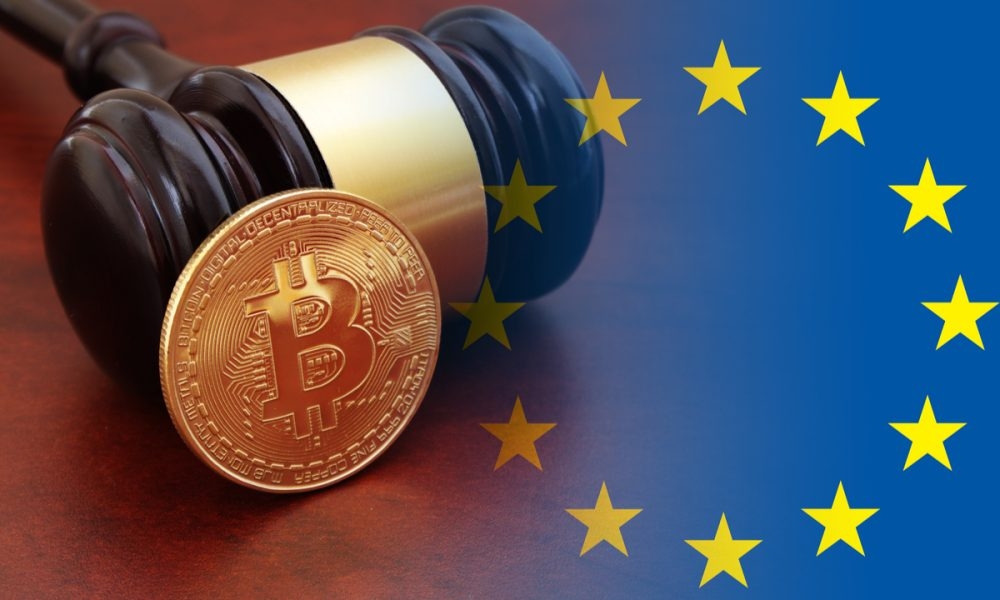As European regulators crack down on unlicensed crypto exchanges, gaining approval is proving challenging.
Last week, for instance, De Nederlandsche Bank (DNB), the Dutch central bank, announced that it had fined the crypto exchange Coinbase €3.325 million (about $3.6 million) for operating in the country without a license prior to the firm being granted one in September of last year.
The penalty follows a similar fine that DNB imposed on Binance in July, as the company continues to operate in the country without the necessary permissions.
Overall, DNB has only handed out a small number of permissions, and the latest fines demonstrate the difficulty crypto firms face in the absence of EU-wide passporting for crypto licenses — a problem which is expected to be resolved with the passing of the EU’s long-awaited Markets in Crypto Assets (MiCA) regulation this year.
That doesn’t resolve the challenge in the U.K., however, as firms that want to offer their services in the country will have to gain further approval from the Financial Conduct Authority (FCA).
And as the financial regulator revealed this month, only 41 of the 260 crypto asset businesses which applied for registration as of January were approved, representing just 15% of the total number of applications received. For the remaining 85% of firms that either withdrew their application or had it rejected, the FCA has offered feedback on what it considers a “good” application.
Expanding Oversight Beyond Anti-Money Laundering
As things stand, European regulatory penalties have been administered on the basis of anti-money laundering (AML) legislation. For example, in the Netherlands, the DNB is the authority responsible for ensuring that crypto businesses comply with relevant AML laws, while the FCA has a similar duty in the U.K.
Under MiCA, EU regulators will have an expanded supervisory remit which will bring the majority of crypto asset services up to a comparable regulatory standard to the traditional financial sector, with rules in place for consumer protection, tax avoidance prevention as an enhanced AML framework.
Meanwhile, in 2023 the U.K. is set to diverge from the EU on crypto regulation.
For example, although the Financial Services and Markets Bill (FSMB), which is currently in parliament, will give the FCA greater scope to regulate crypto firms beyond AML, this will be largely limited to stablecoins, with the country yet to develop a MiCA-style dedicated legislative instrument for the sector.
That isn’t to say that U.K. policymakers haven’t expressed an interest in further legislation, however.
In fact, as part of a broad inquiry into the country’s crypto asset sector, the Treasury Committee has engaged with the FCA and key stakeholders on industry developments, notably a parliamentary meeting last December on the ramifications of the FTX scandal and its effect on British consumers.
In response, Sarah Pritchard, executive director for markets at the FCA, said that the regulator was “really concerned” that consumers engaging with crypto platforms were not being made sufficiently aware of the risks involved.
Moreover, while the FCA did issue a warning about FTX’s illegal operations in the country prior to its collapse, Pritchard reminded members of parliament present that the regulator is limited as its consumer protection remit doesn’t currently extend to the crypto sector.
Similarly, Matthew Long, director of payments and digital assets at the FCA, noted that had the FCA been given an expanded range of powers to regulate the digital asset space, the financial watchdog would have been in a better position to reimburse investors who lost funds in the exchange’s collapse.
“If it was in regulation, we would have a wind-down plan where we would be considering each of those people’s investments and making plans for their reimbursement to be properly considered,” Long told the parliamentary committee.
For now, members of the Treasury Committee seem to have taken note, expressing concern that the sector at present is underregulated and further legislation will be needed to protect consumers going forward.
For example, in a response to the FCA’s recently announced data on crypto firms’ application approvals, the committee chair Harriet Baldwin acknowledged that a review of the statistics and an ongoing inquiry into crypto regulation “have not disabused us of the impression that parts of this industry are a ‘Wild West.’”
Source : [Crypto Exchanges Face Uphill Battle for EU Regulatory Approval](news.google.com/__i/rss/rd/articles/CBMiamh0dHBzOi8vd3d3LnB5bW50cy5jb20vY3J5cHRvY3VycmVuY3kvMjAyMy9jcnlwdG8tZXhjaGFuZ2VzLWZhY2UtdXBoaWxsLWJhdHRsZS1mb3ItZXUtcmVndWxhdG9yeS1hcHByb3ZhbC_SAQA?oc=5) undefined - Crypto US Bitcoin UK•PYMNTS.com / January 30, 2023
